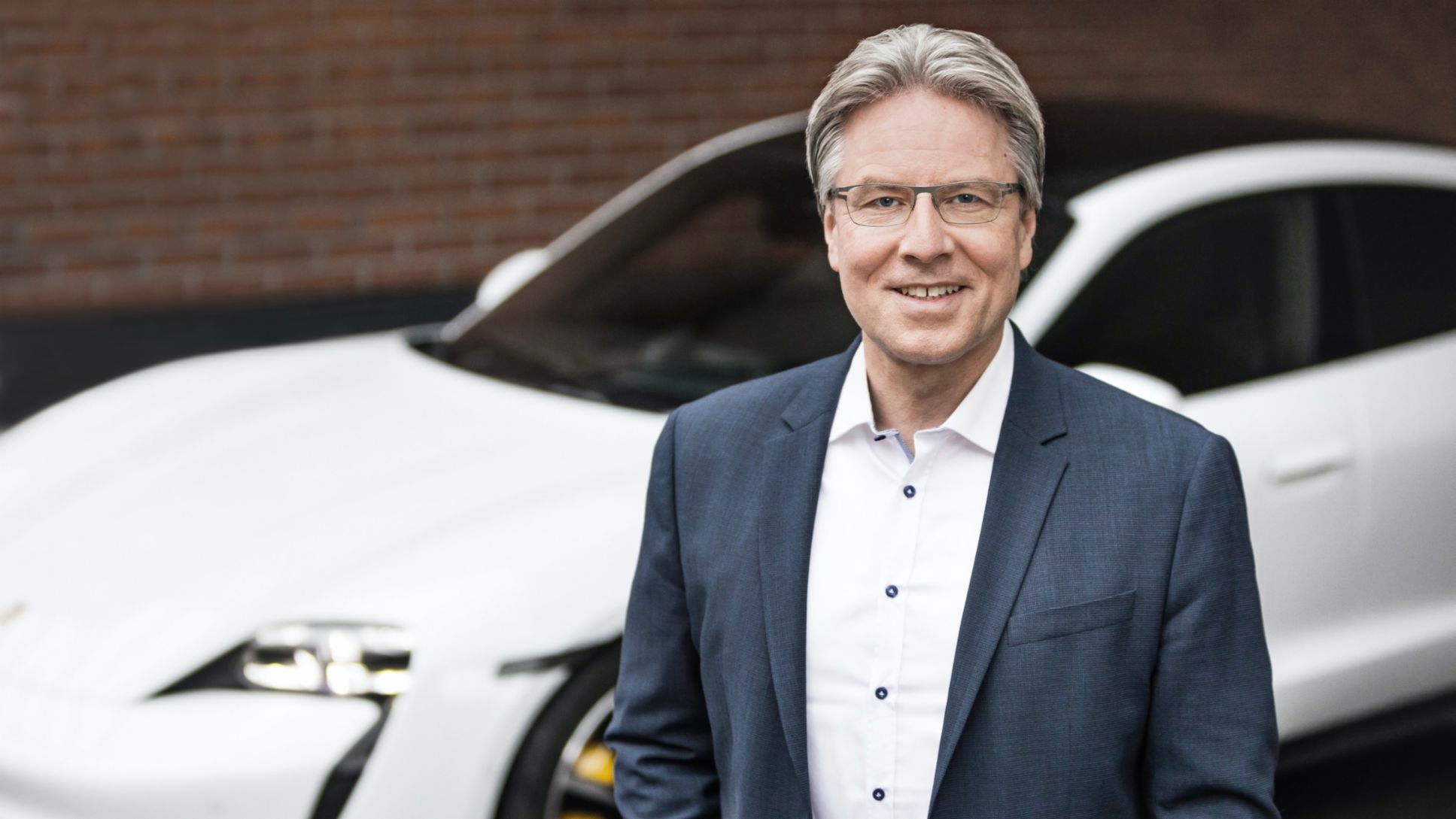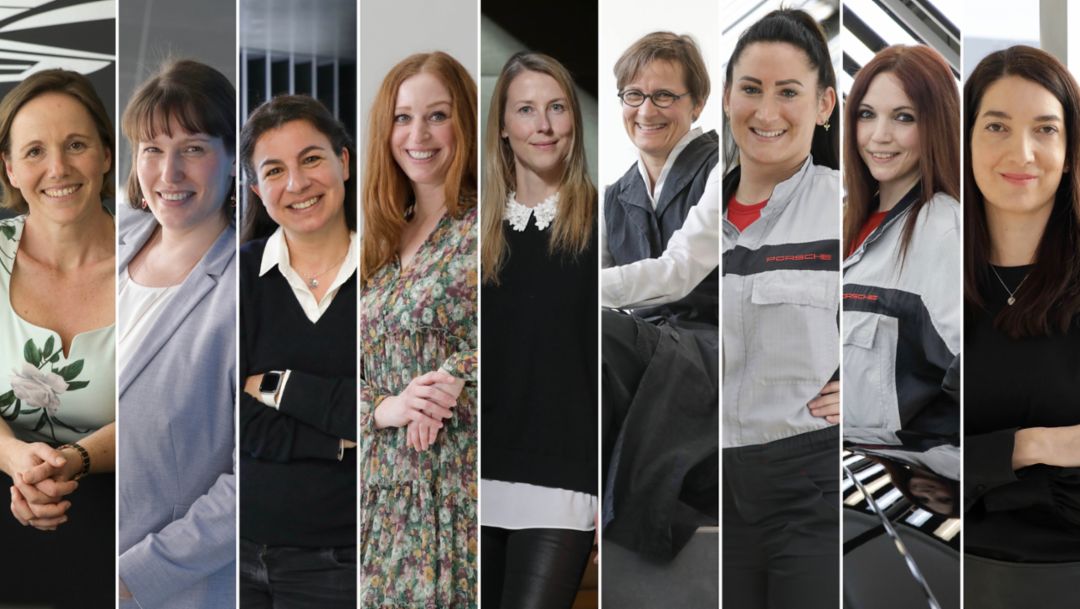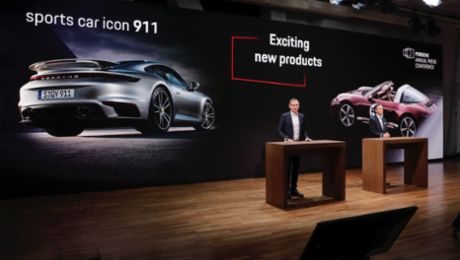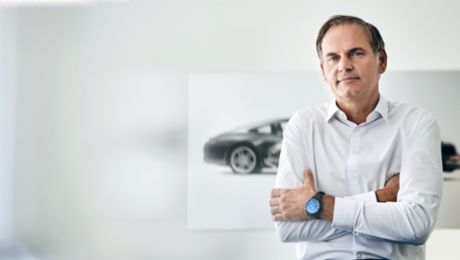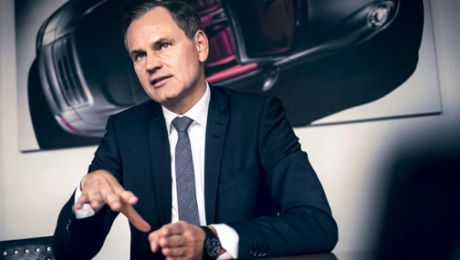Mr Haffner, you call employees the “crown jewels” of Porsche, a comment that is rarely heard from other companies. After all, crown jewels are expensive.
Andreas Haffner: For Porsche, our employees really are the crown jewels. You have to take particular care of them and they have to be polished regularly to maintain their shine. Because one thing is clear: this company would not be as successful if we did not have such fantastic employees.
How does Porsche ‘polish’ its employees?
Haffner: By doing everything we can to ensure that they remain loyal to us in the long term. According to the current Gallup survey, a good two thirds of employees in Germany feel only a little loyalty towards their company and work to rule. They complain that their work is not appreciated. The situation at Porsche is happily very different. We give employees a lot of freedom and convey to them how much we value them and their work. We are like a family that sticks together with our heart and soul, even if we continuously challenge each other.
How is it possible to prove the positive Porsche image?
Haffner: The fluctuation at Porsche is less than one per cent: most of our employees stay with us for their entire working lives. We carry out a mood barometer survey each year. Ninety three per cent of employees say that they see Porsche as an attractive employer. More than 80 per cent are extremely satisfied with their work. That is a top value. Despite the coronavirus pandemic, employees will receive a voluntary bonus of up to 7,850 euros for the fiscal year 2020.
“We give employees a lot of freedom and convey to them how much we value them and their work. We are like a family that sticks together with our heart and soul, even if we continuously challenge each other.” Andreas Haffner
The bonus was just under 2,000 euros less than in 2019, however. Does that not dampen the good mood of the employees at least just a little?
Haffner: On the contrary: I received over a hundred thank-you emails after announcing the bonus. Our employees are quite able to see the big picture. Some were even astonished that we paid such a bonus in these tough coronavirus times. But the team earned it. It is very important to note that the employees do not receive a certain percentage of their salary as a bonus in our company: all receive the same bonus, whether it’s the staff in the canteen or the engineers in the highest salary group.
That sounds a little like luxury socialism at Porsche.
Haffner: That has nothing to do with luxury socialism. Our company success is the result of a fantastic team performance. At Porsche, it is a living tradition that we allow everyone to participate equally in the success that they have achieved through their hard work. There are also no discussions based on envy in our company. A developer recently wrote to me saying that he thinks that it is right to pay everyone the same bonus. That is typical of the Porsche family. As is the fact that we employ around 500 people in catering rather than outsourcing it. We even continue to directly employ some of our cleaning staff. They too receive the bonus in full – depending on their working hours and how long they have been with the company.
In order to afford so much generosity and family spirit, you naturally need to generate corresponding profits. Some supplier companies with more meagre profits than Porsche cannot afford that.
Haffner: I do not dispute that. Porsche achieved an operating result of around 4.2 billion euros and a return on sales of 14.6 per cent in 2020. But we could also say that we wanted to generate even more profit. However, we consciously decided to give back part of our success to our employees via the bonus.
Porsche must be absolutely swamped with job applications.
Haffner: We have around 36,000 employees and are in the happy situation that we receive well over 100,000 applications every year. Our top positions in the employee rankings certainly contribute to that as well. Only recently a survey of students and young professionals, conducted by the German Institute for the Automotive Industry, again ranked Porsche in first place.
But the transformation in the industry, in other words digitalisation and electrification, is also resulting in plenty of upheaval at Porsche. The employees have had to make radical changes. That is not something many like doing.
Haffner: The changes are indeed tremendous. Between 20 and 25 per cent of our employees will no longer be doing the same job in five years. To give just one example: we will have to retrain the majority of the 500 engineers who have been working on combustion engines at Porsche for new drive technology. In order to determine the requirements for the future, we produce what we call transformation maps for each Executive Board department. We look here at each individual employee and examine who needs retraining or further qualification. In the next five years alone, we will invest a high double-digit million amount for this. We will take the employees by the hand, but they must also walk with us.
That sounds exhausting. How does that work?
Haffner: In close cooperation with all those involved and with comprehensive communication. We also use corresponding aids, such as a skill matching tool for example.
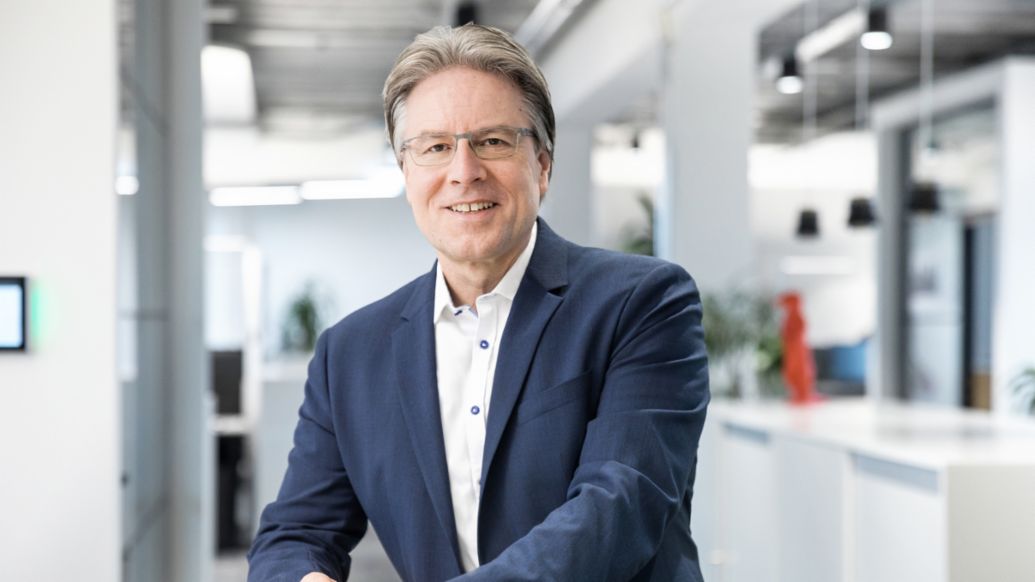
What is that?
Haffner: An employee who wants to change the job they are doing voluntarily enters their curriculum vitae in a computer programme. They provide information about their qualifications or skills and then artificial intelligence comes into play: it matches the information provided by the employee with job vacancies within the company. The system also shows the employee how they can obtain additional qualifications in order to get a certain job. In the end, a personal interview naturally always decides.
And if all this becomes too much for someone, what happens to them? Does Porsche try to reduce such jobs through partial retirement like so many other companies, or even force employees out of the company with voluntary redundancy packages?
Haffner: We do not leave any employee behind. We are not reducing our headcount. With a current workforce of around 36,000 employees, we have a healthy size that we want to maintain. We also don’t have any voluntary redundancy programmes – they would be the wrong paths to take in my view. The experience of older employees in particular is of enormous value for us.
And what about partial retirement?
Haffner: We offer that to a limited extent but again: older employees are not a burden. Their know-how is extremely important for us. An older skilled worker can often solve a technical problem much faster than a young engineer and both benefit from working together. We do not force older employees into partial retirement – we qualify them further. They are an integral part of the transformation of the company.
“We do not leave any employee behind. We are not reducing our headcount. With a current workforce of around 36,000 employees, we have a healthy size that we want to maintain.” Andreas Haffner
Nevertheless, this year alone around 400 Porsche employees are making use of the offer of partial retirement.
Haffner: That is correct, but on a voluntary basis. If a long-standing employee wants to take partial retirement, whether for health reasons or because they no longer want to take part in the transformation in the industry, then we are naturally willing to discuss this. The offer is also attractive: these employees in effect receive 95 per cent of their last net salary. However, we are generally pleased to see that most older employees would like to help shape the company’s transformation on the path to electric mobility. We also recruit older employees. At Porsche we try to find a good job for every employee – as long as they want this, and gladly also up to the regular retirement age.
Is Porsche a job paradise?
Haffner: No, I would not say that. Honey doesn’t flow from the walls – our employees have to work hard for their money. But the overall package seems to be a good one. Our people enjoy working at Porsche. And more than a few of them shed tears when their retirement comes round.
Info
Text first published in Augsburger Allgemeinen Zeitung.
Interview: Stefan Stahl
